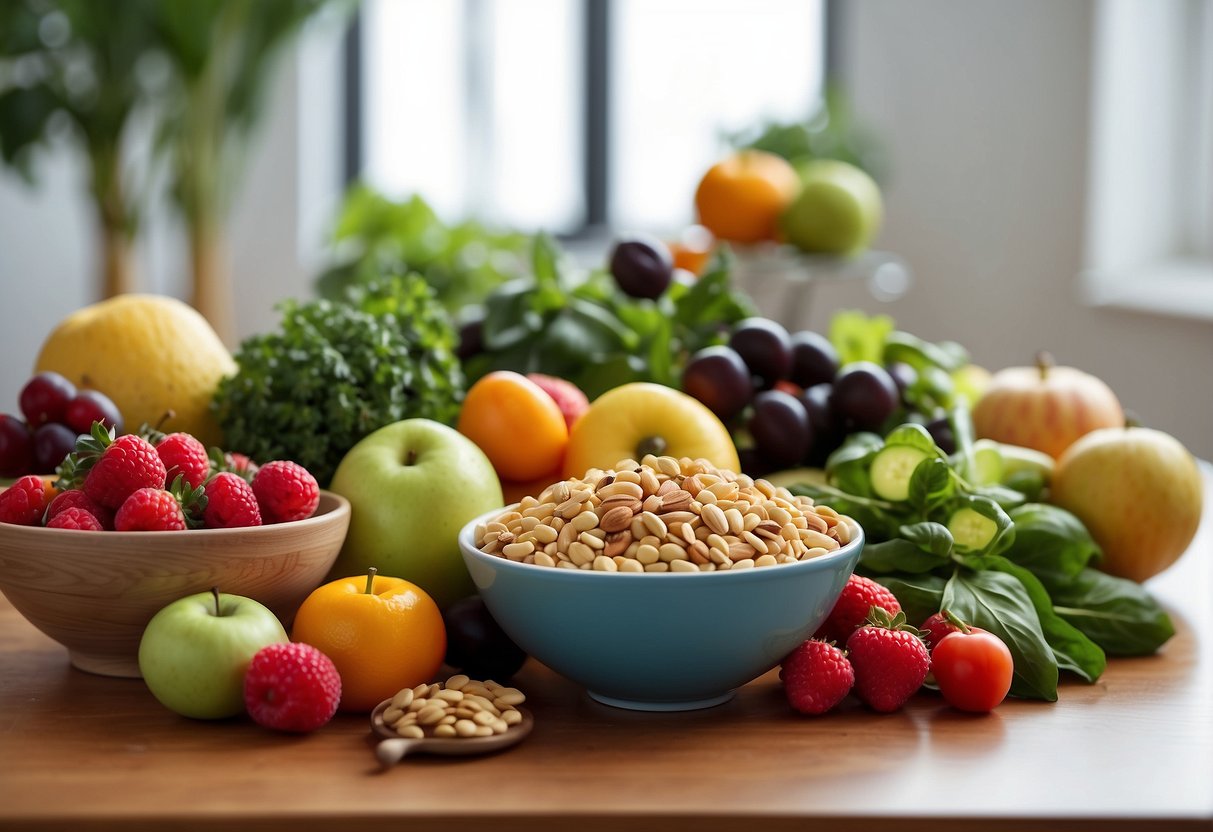
Plant-Based Diet and Physical Fitness
A plant-based diet can significantly aid physical fitness, offering essential nutrients that support both general health and muscle building. Many athletes and fitness enthusiasts choose plant-based nutrition to complement their active lifestyles.
Exercise and Plant-Based Nutrition
For individuals who engage in regular exercise, a plant-based diet provides necessary carbohydrates, proteins, and fats to fuel workouts. Carbohydrates from whole grains, fruits, and vegetables offer sustained energy, essential for endurance activities. These foods also aid in post-exercise recovery by replenishing glycogen stores.
Additionally, plant-based diets are rich in antioxidants and anti-inflammatory compounds. These can help reduce exercise-induced muscular damage and speed up recovery times. Foods like berries, leafy greens, and nuts are excellent sources of these beneficial compounds.
Hydration is another key element in fitness, and fruits and vegetables with high water content, such as cucumbers and watermelon, can help maintain optimal hydration levels. Combining these elements creates a robust nutritional foundation to support an active lifestyle.
Muscle Building and Plant Proteins
Building muscle on a plant-based diet is entirely feasible with the right approach to protein intake. Plant-based proteins like beans, lentils, chickpeas, and tofu are excellent sources that support muscle growth. These proteins offer all essential amino acids when combined appropriately, such as pairing grains and legumes.
Additionally, incorporating plant-based protein powders, like those made from peas or hemp, can help meet higher protein needs for muscle building. Consuming these proteins after workouts aids in muscle repair and growth, providing similar benefits to traditional animal-based proteins.
Inclusion of nutrient-rich foods like quinoa and spirulina can provide an extra boost of protein and other essential nutrients, ensuring that muscle-building goals are met efficiently. A varied and balanced plant-based diet can fully support both strength and muscle development.
Challenges and How to Overcome Them
Switching to a plant-based diet can present challenges, particularly in social settings and when dealing with cravings for familiar animal products. Addressing these issues with practical strategies can make the transition smoother and more sustainable.
Eating Out and Social Events
Navigating social events and dining out can be tricky when following a plant-based diet. Many restaurants may not have extensive vegetarian or vegan options, and social gatherings often feature meat-centric dishes. To manage these situations, it’s helpful to research restaurant menus in advance. Many places offer plant-friendly choices or can customize dishes upon request.
For social events, bringing a plant-based dish to share can ensure there is something suitable to eat while also introducing others to tasty alternative options. Communication is key; letting hosts know about dietary preferences ahead of time can prevent awkward situations and ensure inclusivity. Additionally, seeking out plant-based social groups or events can provide a supportive community that shares similar lifestyle choices.
Dealing with Cravings for Animal Products
Cravings for animal products are common, especially soon after switching to a plant-based diet. These cravings often stem from long-standing dietary habits and can be challenging to overcome. To combat these urges, individuals can explore plant-based alternatives that mimic the taste and texture of meat and dairy products.
There are numerous plant-based meats, cheeses, and dairy-free milks available that can satisfy these cravings. Experimenting with new recipes can also be a fun and rewarding way to discover satisfying plant-based meals. Nutritionally, ensuring a balanced intake of all essential nutrients, including protein, iron, and B vitamins, can help reduce cravings and keep energy levels stable. Finding new, enjoyable plant-based recipes and snacks can keep the diet varied and satisfying.



